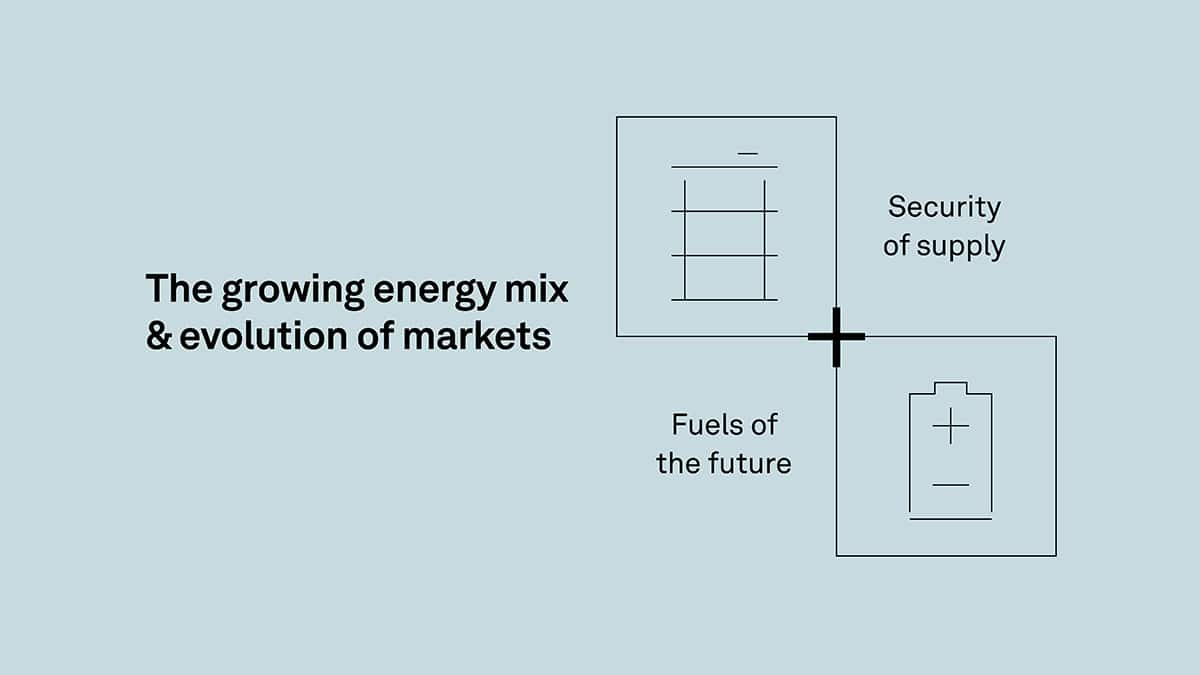Energy Markets Sessions
Leadership Dialogue: Global Markets
Global energy markets have been roiled by the conflicts in Ukraine and the Middle East, sanctions, high inflation, supply chain ruptures and the conti... Read More
Hydrogen as a Global Market Driver
The global hydrogen market is expanding, driven by increased demand for low-carbon and sustainable solutions. This expansion encompasses various forms... Read More
Innovating the Energy Mix for Mobility
For over a century, the modern economy has been made possible by a global fossil fuel system that has delivered low-cost, scalable energy. Now after o... Read More
Hydrogen: How to grow a market
Countries are providing incentives to develop new hydrogen markets, with the U.S. leading the way on the scale of government funding available to the ... Read More
Global Economy: Smooth or rough landing
The global economy is in a fragile state. Inflation rates around the world appear to have peaked, but policymakers still face a difficult task of furt... Read More
Supported by
The Future of Transportation: Molecules and electrons
The transportation sector is in the early stages of a profound transformation driven by accelerating Zero Emission Vehicle (ZEV) penetration. The mix ... Read More
Supported by
Global LNG: Sustaining growth in a world of uncertainty
The importance of LNG in the global energy supply mix continues to grow as liquefaction capacity is set to expand rapidly the rest of this decade. Geo... Read More
Supported by
Energy Security in a Volatile World: The importance of markets
The promise of China’s post-pandemic recovery has given way to concerns over the trajectory of China’s economic growth. In the meantime, in the U.S. a... Read More
Gas & LNG: Investing for the long-term
Among their many roles, natural gas and LNG offer security of supply during times of disruption, an economic resource for emerging economies and a low... Read More
Spotlight | The Dual Challenge: More energy and lower emissions
The involvement of oil and gas companies, including National Oil Companies (NOCs) that account for about 50% of the world’s oil and gas production, in... Read More
Minerals and Mining: Meeting “energy transition demand”?
Decarbonizing the global energy system will require the rapid development of new large-scale supply chains for minerals and metal—such as copper, lith... Read More
Electric Vehicle Penetration: Accelerating or braking?
Electric vehicle (EV) sales are growing quickly in key markets. Strong government support and stringent tailpipe emissions standards, along with robus... Read More
Co-Location: The new duo of power generation and storage
Business models for grid-connected energy storage are being solidified around the world, leading to accelerated growth. In addition, “co-location” pro... Read More
Integration of Refining and Agriculture: How will these industries change together?
Policy is driving the liquid fuels business to invest in lower-carbon intensity products and processing. As a result, the refining and agricultural in... Read More
Latest Developments in Smart Grid Technology Enabled by AI
More efficient calculations in energy demand, renewable energy efficiency and storage use are just some of the advantages that artificial intelligence... Read More
Supplying the U.S. Hydrogen Hubs: Equipping a hydrogen ecosystem
Building a hydrogen supply chain involves several key steps and considerations to ensure the reliable production, storage, transportation, and distrib... Read More
Tripling Renewables by 2030: Supply chain challenges
Across the global stage, over a hundred countries have pledged to triple renewable energy deployment by 2030. How are these countries addressing poten... Read More
Building the (Big) Grid of the Future
The electric power sector is at the forefront of the energy transition. Renewables are rapidly replacing fossil fuel power plants while electric vehic... Read More
Forging Ahead: Critical minerals and the energy transition
As the key components of batteries and electrification technologies, demand for copper, lithium, nickel, cobalt and other critical minerals is expecte... Read More
Building the Hydrogen Workforce
A new workforce will be required to build a new industry, but what is needed to develop the skills for growth and innovation in hydrogen? How can comp... Read More
Spotlight | Impact of the IRA on U.S. Electric Power
The Inflation Reduction Act (IRA) is intended to spur the deployment of clean energy technologies and propel the U.S. toward a decarbonized power syst... Read More
CERAWeek Podcast







